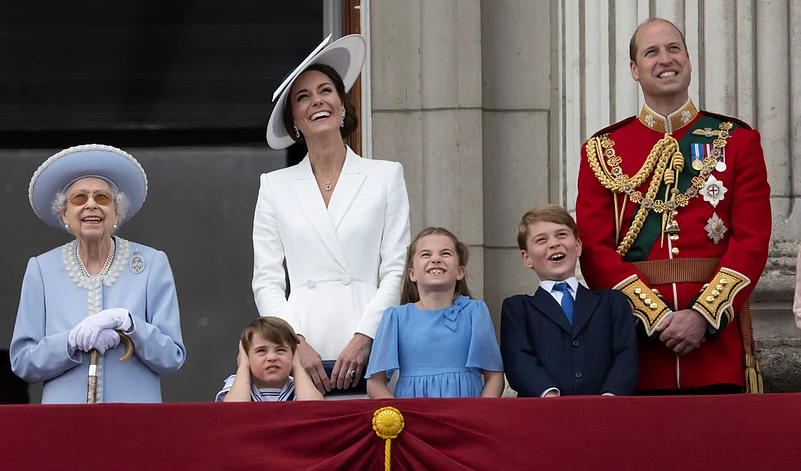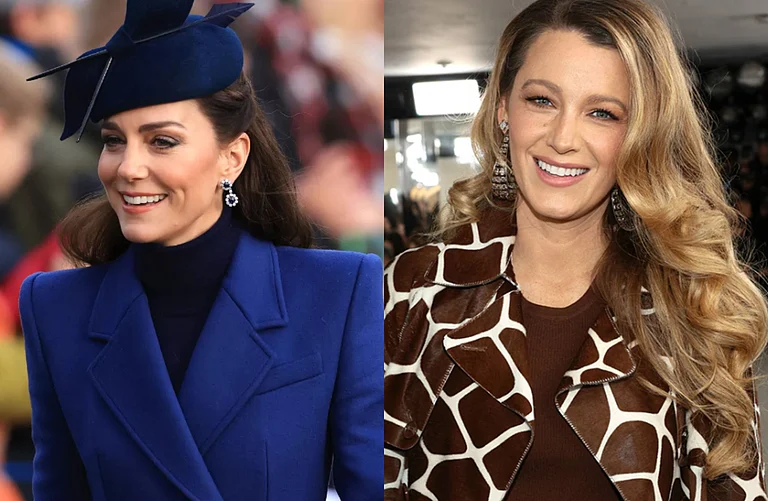Duchess of Cambridge, Princess Kate Middleton, shared with the world that she is embarking on a challenging journey as she battles cancer and undergoes chemotherapy through a video announcement on Friday. While the specifics of her condition and treatment remain closely guarded, here's a comprehensive overview of what has been disclosed thus far:
What All We Know About Princess Kate Middleton’s Cancer Diagnosis So Far?
Kate Middleton’s revelation about taking chemotherapy and medications after being diagnosed with cancer has shaken the world.

What type of Cancer does Kate has?
Kate did not disclose the specific type of cancer she has been diagnosed with. During her recent announcement, she mentioned that she is undergoing preventative chemotherapy based on the guidance of her medical team.
"It has been an incredibly challenging time for our family, but I have received exceptional care from my medical team," she stated in the video, which palace officials confirmed was recorded on Wednesday.
"In January, I underwent significant abdominal surgery in London, and initially, it was believed that my condition was non-cancerous," she elaborated. "The surgery was successful. However, subsequent tests revealed the presence of cancer. Consequently, my medical team recommended that I undergo a course of preventative chemotherapy, and I have commenced early stages of this treatment."
What happened to Kate in January?
On January 16, Kate underwent what was described as abdominal surgery, although the exact nature of the procedure was not initially divulged. It was only on the following day that Kensington Palace confirmed the occurrence of the operation, reassuring the public that it had been planned and successful. At that time, officials emphasized that Kate's condition was noncancerous.
Discovery of cancer: Post-Surgery tests unveil diagnosis
During her recent candid video address, Kate revealed the startling news that subsequent tests conducted after the surgery uncovered the presence of cancer. However, she refrained from disclosing specifics regarding the type of cancer or the details of her chemotherapy regimen. According to a statement from Kensington Palace, the diagnosis was made following comprehensive post-surgery assessments.
Limited information provided about Kate’s treatment
In a move to safeguard Kate's privacy, the palace statement underscored that no further specifics regarding her cancer or treatment regimen would be disclosed. However, it was mentioned that her treatment journey commenced in late February, with the exact duration and nature of the therapy left to the discretion of her esteemed medical team.

What is ‘preventive chemotherapy’?
According to medical proffessionals, "preventative chemotherapy" can apply to a wide spectrum of medications for numerous cancer types. Dr. Katherine Van Loon, a gastrointestinal oncologist at the University of California, San Francisco and a professor of medicine says, "It's not a medical term, but I think we all agree that she is referring to adjuvant chemotherapy." (Dr. Loon has no personal knowledge of the Princess of Wales' situation).
Adjuvant chemotherapy is a treatment that involves the same chemotherapy drugs as those used to treat active or advanced cancer. It is meant to kill any remaining, microscopic cancer cells that a surgeon could not see and may have missed, and to destroy any cells that may have escaped and spread to other parts of the body. Studies have shown that giving anywhere from three to six months of chemotherapy after surgery can significantly reduce the risk of cancer coming back.
Dr. Jeremy Jones, interim chair of the division of hematology and oncology at the Mayo Clinic, states that doctors decide to start adjuvant chemotherapy based on a combination of factors, but the main criterion is the stage of cancer. Adjuvant chemotherapy is generally prescribed if there is concern based on the pathology or patient's clinical history that they are at risk of the cancer returning in the future.
When all visible traces of a patient's cancer have been removed during surgery and adjuvant chemotherapy is used, doctors can prescribe any of the hundreds of agents available to treat more advanced cancers. Most courses of preventive chemotherapy last at least three months.
There is a lot of evidence to support adjuvant chemotherapy impacting overall survival, allowing patients to live years longer and possibly even effecting a cure. The hope is that it is preventing recurrence and allowing the Princess of Wales to live a full and productive life.
Chemotherapy: side effects and recovery
Chemotherapy, commonly employed post-surgery, aims to eradicate any residual cancer cells and prevent the possibility of recurrence. While often associated with side effects such as fatigue, nausea, and hair loss, advancements in treatment modalities have led to improved management of these symptoms, enhancing patient comfort and quality of life during treatment.
Amidst the challenges posed by her diagnosis, Princess Kate has requested understanding and privacy as she navigates her treatment journey. She also candidly shared the difficulty of discussing her diagnosis with her three young children, highlighting the importance of age-appropriate communication during such times of upheaval.

Rarity of cancer diagnosis after surgery
While relatively uncommon, the discovery of cancer after surgery for noncancerous conditions does occur, affecting approximately 4% of such cases, according to insights shared by Dr. Yuman Fong of the esteemed City of Hope cancer center in Southern California.
Cancer, typically associated with advanced age, is relatively rare among young adults. However, it's worth noting that rates of certain cancers are on the rise in developed nations. Princess Kate, aged 42, falls within this demographic, underscoring the importance of vigilance and early detection.
In the wake of her disclosure, an outpouring of supportive messages and well-wishes has flooded in from around the globe. Among those offering words of encouragement is Kate's father-in-law, King Charles, who recently shared his own journey with cancer treatment. As the Duchess of Cambridge embarks on this arduous journey, the global community remains hopeful for her full recovery and extends heartfelt support to her and her family during this challenging time.
- Previous Story
 Kamala Harris Promises To Legalise Marijuana, Pass George Floyd Policing Act
Kamala Harris Promises To Legalise Marijuana, Pass George Floyd Policing Act - Next Story
























